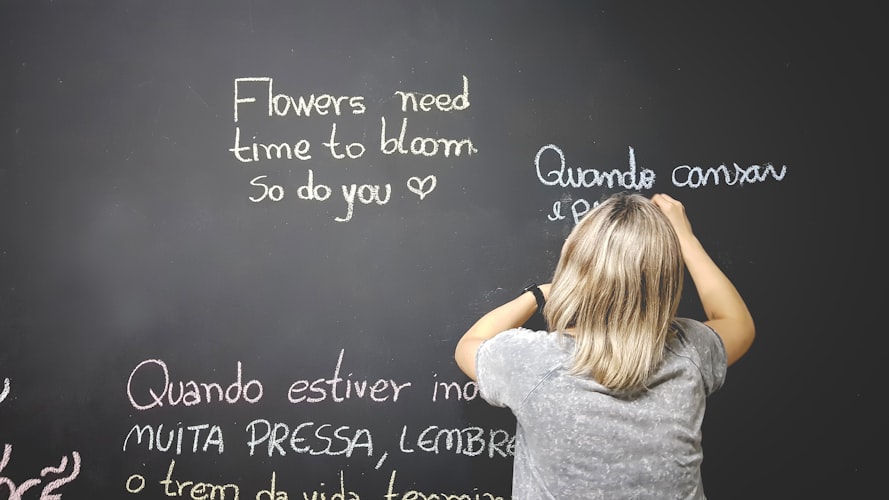7 Tips for Learning a Foreign Language Faster
Learning new languages, especially English, has become very popular in 2020 due to social distancing norms and more free time available for personal development. Based on recent reports, over 30 million people attempted to learn a new language in 2020, with 40.5% being part of Gen Z.
This indicates that young people want to learn foreign languages but often don’t know how to go about it the right way. Let’s take a look at several easy-to-follow tips for learning languages that will help you learn faster and more easily in 2021.
1. Find a Motivator for Learning
The first thing you should think about when you decide to learn a new language is “why”. Why do you want to learn that language now and how will that benefit you? People learn new languages for a variety of reasons, whether to create art such as literature or to move to a different country.
Others do it because they met a special someone abroad or got a job offer but need to learn English, Spanish, or German quickly. Find your motivator and think about it every time you feel unmotivated to learn more, as it will help you refocus your efforts to learn.
2. Set Weekly Goals for Learning
A steady set of goals is extremely important for constant, gradual learning of a new language. Learning Russian, French or Greek won’t happen overnight – each language is unique in its grammar, vocabulary, and speech patterns.
You should consider using SMART to set several weekly goals for yourself to follow and then track with a personalized app or notebook. Ticking off goals will help you realize that yes, you are making progress by learning daily.
3. Consume Foreign Language Media
Whichever language you choose to learn, there is bound to be a plethora of movies, shows, and music for you to enjoy. You can check out Netflix for international movies and shows, while Spotify and YouTube have a variety of music playlists for you to listen to.
If you are brave enough, you can also get a book in Italian, English, or Chinese and discover new words as you learn. Consuming media is an easy way for your brain to associate words and phrases with that language and help you memorize words faster.
4. Carry a Small Dictionary with You
While it may seem old-school, carrying a small pocket dictionary with you can help a lot. You can take out your dictionary when on a walk, in a supermarket, or on a road trip and learn new words by association.
If you’re from Gen Z, you can also download a dictionary app on your smartphone instead of carrying a book with you. Regardless, keeping a dictionary close by will help you learn the new language bit by bit wherever you go.
5. Think to Yourself in That Language
Having an internal monologue is completely normal – having one in a different language is somewhat tricky. You can get accustomed to a new language more quickly if you try thinking about it from time to time. Need to buy groceries or pay the bills? Think about those chores in a language other than your native one.
You can refer to translation online services to write down and translate words and phrases for future reference, as well as translate any notes professionally. While it will take some time for you to get going, your brain will have a much easier time learning new words with internal monologues.
6. Visit the Country or Find Native Speakers Locally
Of course, the best way for you to learn a new language quickly is to jump into the deep end and speak to a native. You can do this either by visiting the country that the language is spoken in or by looking for native speakers locally.
Depending on where you live, both options are completely viable, and you will be able to find conversation partners in your chosen language.
7. You Need Time to Become Fluent – That’s Okay
Learning a foreign language is not easy – everyone would do it otherwise. You must give yourself time, and plenty of it. You will make mistakes, especially when you start speaking verbally and especially with natives.
However, every mistake will also be a lesson, and you will quickly break the proverbial ice and be more comfortable speaking that language. Once that happens, your learning process will speed up exponentially and bring you closer to becoming a native speaker yourself.
Learning by Doing (Conclusion)
The best tip you could ever receive about learning a new language is to just start. Take a look at that language’s alphabet, basic grammar, numbering, and other everyday terminology.
Look for parallels with your language and use them as starting points for more in-depth learning. Learning a foreign language lessons is one of the best things you can do in terms of personal development – keep that in mind and enjoy learning.
Bio: Melony Hart is a professional copywriter, content creator, and digital marketing aficionado. Her inspiration lies in bringing readers around the world practical insight and tips about personal and professional development. Melony spends her free time blogging and journaling as she likes to write new papers daily.
Print this Article



